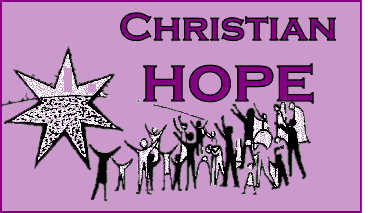13 December 2020
Isaiah 61:1-2,10-11
1 Thessalonians 5:16-24
John 1:6-8,19-28
Many have seen Franco Zeffirelli’s famous film, Jesus of Nazareth. Though I saw it many years ago, a striking line, spoken by Yehuda, the rabbi, as he looks forward to the birth of the Messiah, has remained with me. ‘A future without hope’, he says, ‘is like a night without stars’. An Irish liturgist, writing on the Advent Liturgy, describes Advent as a continuous song of hope. Today’s liturgy especially resonates with joyful hope. The first reading from the Prophet Isaiah underlines this note of joy: ’I exult for joy in the Lord, my soul rejoices in my God, for he has clothed me in the garments of salvation, he has wrapped me in the cloak of integrity’ (Is 61:10).
Christianity is basically a religion of hope. Christians look forward to a better and brighter future for all humanity and for all creation. Our hope is based on God’s personal dwelling among us to heal, redeem, and transform our lives. This hope is movingly expressed in Isaiah’s portrait of the promised Messiah as a wise, holy and peaceful King ‘who will judge the poor with justice and decide in favour of the land’s afflicted’ (Is 11:1-10). He will put an end to conflict and bring lasting peace. With his coming, warring factions will ‘beat their swords into ploughshares and their spears into pruning hooks’.
Yet, despite Christ’s coming, our world is not as God wants it to be. It is still a world marred by injustice, hatred, and violence. The brave new world envisaged by science and technology is very far from being a reality. Confidence in the progress of civilization has been severely damaged, if not undermined, by the emergence of new forms of lawlessness and corruption. The recent re-emergence of xenophobic populist movements frustrate political efforts to create a more open and caring society. A pernicious drug culture is spiraling out of control in many countries, including Ireland. The Covid-19 pandemic continues to wreak havoc on a global scale. Accelerated global warming and the frightening extinction of species threaten the very future of human life on earth.
In circumstances such as these it difficult to be optimistic. However, hope is not to be confused with optimism. Optimism may be naïve about the reality of failure in our lives. Hope is not. The hope which we celebrate in the Eucharist, and to which we strive to witness in our lives, is a hope that can look beyond the brokenness of our world because it is based on our faith in Christ. It is hope for a new life that rises out of the ashes of death and decay. Such hope is not confined by the limits of our vision or our human resources. Even when we are tempted to lose heart, God is not. His ultimate purpose in creation, reaffirmed in the incarnation, and gloriously manifested in the Resurrection of Christ, will not fail.
We shall not be overwhelmed. God’s reign is greater than the beleaguered kingdom of our hearts. We have placed our hope in someone who has overcome all things, not in something to be won or lost. And so, we continue to hope, even when situations appear almost hopeless, convinced that God will complete what he began when he sent us his Son. We may not know how or when this completion will happen, but, as surely as day follows night, it will happen. It is to this hope that Paul gives voice in his Epistle to the Romans when he says:
Can anything cut us off from the love of Christ – can hardships, or distress, or persecution, or lack of food and clothing, or threats or violence?… No; we come through all these things triumphantly victorious, by the power of him who loved us. For I am certain of this: neither death nor life, nor angels, nor principalities, nothing already in existence and nothing still to come, nor any power, nor the heights nor the depths, nor any created thing whatever, will be able to come between us and the love of God, known to us in Christ Jesus, our Lord (Rom. 8: 31-32; 35-39).
Fr Michael McCabe SMA, December 2020
Click on the play button below to listen to an alternative homily from Fr Tom Casey SMA

